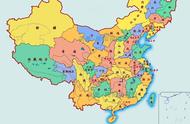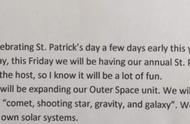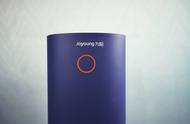
1. We do not use articles before plural nouns and noncount nouns when making generalizations
可数名词复数或不可数名词表示笼统的概念,使用零冠词
① Dogs are much more playful than cats.
狗比猫更爱玩。
② Noncount nouns include materials (like gold), substances (like water and fire), abstract things (like music and justice) and some other things.
不可数名词包括材料(如黄金)、物质名词(如水和火)、抽象名词(如音乐和正义)等等。
★ Freedom is better than imprisonment.
自由总比监禁好。
★ Beauty is in the eye of the beholder.
情人眼里出西施。
2. Used for people names, streets, towns, cities, countries, specific mountains.
人名、街道、城镇、城市、国家、具体的某座山前,使用零冠词
★ I want to climb Mount Everest one day.
我想有一天能登上珠穆朗玛峰。
◆ 而山脉需要加定冠词THE, 如the Himalayas, the Andes
◆ 人名前一般不加任何冠词,但是要表示某个叫这样名字的人则可以加不定冠词,如a Forste, 一个叫福斯特的人;姓名前加定冠词the,词尾再加”s”,则表示全家人。
3. Names of meals have no article.
一日三餐前使用零冠词。
★ Let’s have breakfast / lunch / supper.
吃早餐/午餐/晚餐。
4. No article before the name of a sport and the name of a game.
某项运动、棋类游戏前,使用零冠词。
★ I like football.
我喜欢足球。
★ He plays chess to a high level.
他的国际象棋达到了很高的水平。
5. Used for planets (Mercury水星, Venus金星, Mars火星, Jupiter木星, Saturn土星, Uranus天王星, Neptune海王星, Earth地球)
八大行星前使用零冠词。
★ People will travel to Mars soon.
人们很快就能前往火星旅行。
★ Earth or the Earth: People usually say Earth when they are referring to the planet as part of the universe, and the Earth when they are talking about the planet as the place where we live.
地球(指宇宙组成部分时用Earth,指人类居住的星球时用the Earth)
6. Some well-known and everyday places don’t take THE, such as, at school / at work / at home / at college / in prison / in jail / in hospital / in bed / in class.
一些知名的地方或日常生活的地方使用零冠词,加上THE后则意义发生变化。
★ Sorry, I can’t talk right now. I’m at work.
不好意思,我现在不方便说话。我在工作。
★ I will see you at college.
我们大学见。
7. For days, months and seasons, we use zero article.
星期、月份及季节前,使用零冠词。
★ 星期:Monday, Tuesday, Wednesday, Thursday, Friday, Saturday, Sunday
★ 月份:January, February, March, April, May, June, July, August, September, October, November, December
★ 季节:spring, summer, autumn, winter
8. No article is used with some phrases that relate to transportation, such as: “by car,” “by train,” “by bus,” “by air” and “on foot."
与by连用的交通工具或固定搭配on foot,常用零冠词。
★ I came here by train/by bus/by coach/by plane/by air.
我坐火车/公共汽车/长途汽车/飞机/飞机来这里的。
9. Before languages and academic subjects
在语言和学科前,使用零冠词。
★ 语言: Chinese, English, Spanish, Russian
★ 学科: History, Law, Physics
★ Alice teaches English at Voice of America.
爱丽丝在《美国之音》教英语。
10. “普通名词 as” 开始的让步分句中,此普通名词通常用零冠词
★ Fool as he is, Tom couldn’t have done such a thing.
汤姆虽然傻,但他不可能做出这样的事。
11. 在作同位语或补足语表示独一无二的职位、头衔的名词之前,常用零冠词
★ William Faulkner, American novelist, was awarded the Nobel Prize for literature in 1949.
美国小说家威廉·福克纳,1949年被授予诺贝尔文学奖。
12. Turn作系动词,后接职位、职业时,常用零冠词
★ He used to be a teacher till he turned writer.
在他成为一名作家之前一直在当老师。
13. 职位、头衔:Professor Wang, Doctor Shelly, President Lincoln














